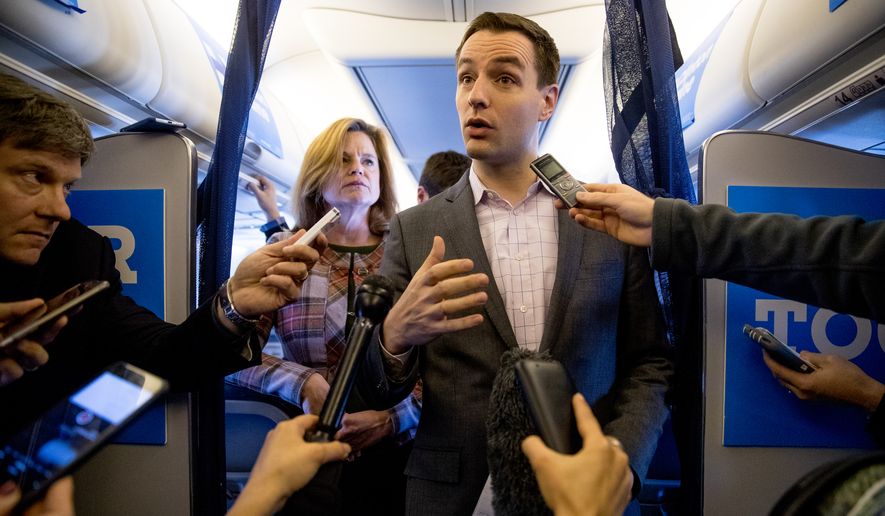Hillary Clinton and Mitt Romney’s former campaign managers will co-lead a Harvard initiative aimed at safeguarding the nation’s elections from future cyberattacks after hackers meddled in last year’s White House race.
Robby Mook, Mrs. Clinton’s 2016 campaign manager, and Matt Rhoades, Mr. Romney’s 2012 campaign manager, will join the Belfer Center for Science and International Affairs at Harvard Kennedy School’s newly established “Defending Digital Democracy” (DDD) Project as “fellows and co-leaders,” the center announced Tuesday.
Along with a team of bipartisan security experts and election lawyers, the former campaign chairs will strive to “identify and recommend strategies, tools and technology to protect democratic processes and systems from cyber and information attacks,” the Belfer Center said in a statement.
“Over the last two years, nearly every election on both sides of the Atlantic has been affected by foreign cyber attacks, including Hillary Clinton’s in 2016,” Mr. Mook said. “This project will find practical solutions to help both parties and civic institutions that are critical to our elections better secure themselves and become more resilient to attacks.”
Mr. Rhoades agreed.
“Cyber attacks on campaigns and elections are a threat to our democracy and affect people of all political stripes,” he said. “This project will bring together not just different parties and ideologies, but subject matter experts from cyber security, national security, technology and election administration to make a difference.”
The project is being overseen by Eric Rosenbach, who was chief of staff for former Defense Secretary Ashton Carter, and has already enlisted election attorneys Marc Elias and Ben Ginsberg in addition to a handful of high-profile security professionals including Facebook’s chief security officer, Alex Stamos, Google’s director of information security and privacy, Heather Adkins, and the co-founder of cybersecurity firm CrowdStrike, Dmitri Alperovich, among others.
“Americans across the political spectrum agree that political contests should be decided by the power of ideas, not the skill of foreign hackers,” Mr. Rosenbach said. “Cyber deterrence starts with strong cyber defense — and this project brings together key partners in politics, national security and technology to generate innovative ideas to safeguard our key democratic institutions.”
Mr. Mook oversaw Mrs. Clinton’s Democratic presidential campaign last summer when hackers successfully breached the email account of its chairman, John Podesta, and obtained thousands of personal emails subsequently published by WikiLeaks. The U.S. intelligence community has blamed that breach and a similar cyberattack targeting the Democratic National Committee on state-sponsored hackers working for the Russian government in an effort to interfere in last year’s White House contest, but Moscow has repeatedly denied responsibility.
Mr. Rhoades, meanwhile, managed Mr. Romney’s bid in 2012 when an individual claimed to have acquired the Republican candidate’s tax returns by hacking into an accounting firm and threatened to release them. A federal investigation later revealed the purported hacker never accessed Mr. Romney’s tax documents, but a judge sentenced him nonetheless last year to 48 months in prison for related wire fraud and extortion convictions.
• Andrew Blake can be reached at ablake@washingtontimes.com.




Please read our comment policy before commenting.